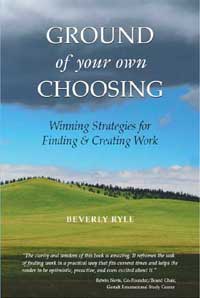Tag
Sand Castles

Just before sunset at low tide, the flats at Skaket Beach seemed to stretch all the way to the horizon and the sand and sky enfolded me in a soothing blanket of light.
The young parents and their sand-covered toddlers, the older couples in lawn chairs, the other solitary walkers like me were swaddled in a lavender hue in surroundings so spacious and calm that we moved slowly and kept our voices low to savor it.
In light like that you see things differently and as I ambled up the beach from the water’s edge I began to look at the day’s collection of sand castles that dotted the hard packed sand with new eyes.
Some were walled kingdoms with roads and moats, others were laid out geometrically with structures meticulously shaped using round or square molds, one featured a sea grass tower and another a beach pebble walkway. But the majority were spontaneous creations, shaped with no plan by tiny fingers for the pure delight of playing in wet sand, or by the bigger hands of adults who remembered how much fun it could be to make something for no other reason than the pleasure you get from doing it.
All would be flattened by the incoming tide, which started me wondering—which of the two types of castle-builders, the one who worked at constructing a masterpiece, or the one who had little interest in the final product, had a better day at the beach?
Should vs. Want
 Raise your hand if you’ve ever spent a lot of money on a textbook for a class you really didn’t want to take.
Raise your hand if you’ve ever spent a lot of money on a textbook for a class you really didn’t want to take.
I have a vivid memory of waiting in line in a college bookstore to buy an 800-page statistics manual for a quantitative methods course in an MBA program. I was recently divorced, in my mid-forties, re-entering the work world, and this was the prescribed credential.
But as I inched closer to the checkout area, I happened to pass the Art History section and my heart beat faster as book cover images of Gothic cathedrals, Old Masters and Impressionist landscapes caught my eye. A powerful urge to abandon multivariate data analysis for Degas’ ballerinas came over me, but I dutifully held on to the textbook, even as it grew heavier in my arms.
Spring Cleaning
 During the first week of spring, the temperature dipped into the twenties, the daffodils lay prostrate on the walk, and I devoted an entire day to cleaning out my files.
During the first week of spring, the temperature dipped into the twenties, the daffodils lay prostrate on the walk, and I devoted an entire day to cleaning out my files.
I usually purge them in January to get a fresh start on the year, but I had failed to do so, not only this past January, but also in January of 2011.
So it was time—past time. Too much paper never sorts itself out. The trivial and the important were jammed together, both in the cabinet and in my head.
I soon realized that my neglect to use organization as a strategic planning tool (see Wildly Organized) was symbolic of an ambivalence about where I am in my professional life.
Investing in Yourself
 After the holiday break, I was not surprised to start 2011 with a full inbox, but what has been startling is the number of emails I have received from people over 50 who have been laid off and can't find work.
After the holiday break, I was not surprised to start 2011 with a full inbox, but what has been startling is the number of emails I have received from people over 50 who have been laid off and can't find work.
For months, in some cases years, these people have carried on discouraging job-search campaigns directed toward securing the kind of work they did before "the bottom fell out" of their professional lives.
They have reached the point where they feel they "can't buy a job" and are at their wits end as to what to do next.
At first I wondered, what do I say to these people? But then I noticed that none of them mentioned doing anything to create something new.
Fear Funk

Sometimes it comes on gradually—the pressure you feel to find work, get your business in the black again, or restore stability to your financial future accumulates, causing sleepless nights or mornings when you sit at your desk not knowing what to do next.
Or there may be a trigger—one rejection too many, a bill you can't pay, or a depressing headline saps your belief in yourself and better days ahead, and you have that sinking sensation of fear taking you over for a few days or a week or longer.
Fear is a natural reaction to change, and you can expect it to be particularly active when your work-life, that part of your existence that provides sustenance, purpose and identity, has been shaken like a snow globe.
The Daily Grind
 At the Daily Grind coffee shop in Cortland, New York, I watched a steady stream of farmers in overalls, contractors in flannel shirts, and 9-to-5 employees in business dress, and I thought about how every town or neighborhood has a hub like this. Find a Daily Grind, full of regulars who stop in on their way to work, and you've found the heart of the work life of a city.
At the Daily Grind coffee shop in Cortland, New York, I watched a steady stream of farmers in overalls, contractors in flannel shirts, and 9-to-5 employees in business dress, and I thought about how every town or neighborhood has a hub like this. Find a Daily Grind, full of regulars who stop in on their way to work, and you've found the heart of the work life of a city.
Listening to what was being said there, it became clear to me that the Cortlanders whose daily ritual I was observing were trying to make a living in a place where that is not always an easy thing to do—the town has an 11% unemployment rate and negative job growth.
People usually go about about dealing with work being hard to find in three distinct ways.
My Focus for the New Year
 Raise a glass half full to 2010!” said the headline.
Raise a glass half full to 2010!” said the headline.
Whenever I thumb through one of those women’s magazines, the kind with a photograph of a triple-layer chocolate mousse cake on the cover with a caption promising twelve effortless ways of slimming down, I usually forget what I’ve read as soon as I’ve read it, but the idea of toasting the new year with a glass half full resonated with me because it is both realistic and hopeful. Realistic because it acknowledges what isn’t there as well as what is. Hopeful because it offers the choice of where to put your energy with a more complete understanding of what’s missing.
Negativity being inherent in the human condition, most of us don’t have any trouble seeing what’s wrong or missing in our lives. But how do we, particularly in times like these, learn to “accentuate the positive,” as the Johnny Mercer song says?
Career Undertaker
As we were leaving, one of the guests turned to me and said, " hope I don't have to use your services!" I felt as if someone had just thrown a bucket of ice water on me. It was the first time I had ever had anyone talk about dreading the prospect of coming to see me as a client. I have always viewed what I do as helping people to enrich their lives, and it had never occurred to me that someone would see it as inseparable from the painful possibility of losing their job.
But these are not ordinary times, and the woman who made the remark works in an industry which is shrinking. She is dealing not only with anxiety over a lost livelihood, but also a life's work she had dreamed of following ever since she was a child. Who could blame her for thinking of me a bit like the undertaker?
A Commencement Letter
 Dear Graduate,
Dear Graduate,
"The rest of your life is an eight o'clock class," a colleague of mine likes to say to the new graduates he counsels. It's a delightful metaphor, but I think that makes it sound too easy. It suggests that, in your professional future, just signing up and showing up will be enough.
As you've no doubt learned during the last four years, it's possible to take a course, pass it, even get a good grade in it, without being fully engaged. This behavior will not work for you in today's workplace. Anyone who takes a passive stance puts their job status at risk.
Back in the days when recruitment out of college led to a progressive career track with the same company (IBM, GE, AT&T, etc.) it was valid, but in the competitive, global marketplace you are entering today, it is not.
Back to School
 Thirty-four years ago this month, I put my oldest daughter on a school bus for the first time. The emotions that were a part of that day come back to me every year when I see school supplies on sale, and when the first day of school comes around and I see kids congregated at the bus stop at the end of our road, I relive the experience.
Thirty-four years ago this month, I put my oldest daughter on a school bus for the first time. The emotions that were a part of that day come back to me every year when I see school supplies on sale, and when the first day of school comes around and I see kids congregated at the bus stop at the end of our road, I relive the experience.
You don’t forget how frightened and small your firstborn looks climbing aboard a big yellow bus that is taking her away from you. I can still see her bravely walking toward the steps in a new dress and shiny shoes, biting her lip and clutching a Flintstones lunchbox, a large name tag handpainted by her kindergarten teacher (it was tear-stained by the time she got back home) hanging from a purple wool string and flapping in the breeze.
I hid my feelings behind a camera, and when the pictures came back (we sent them away in those days) I discovered there were a dozen of the school bus pulling away that I didn’t remember taking!






